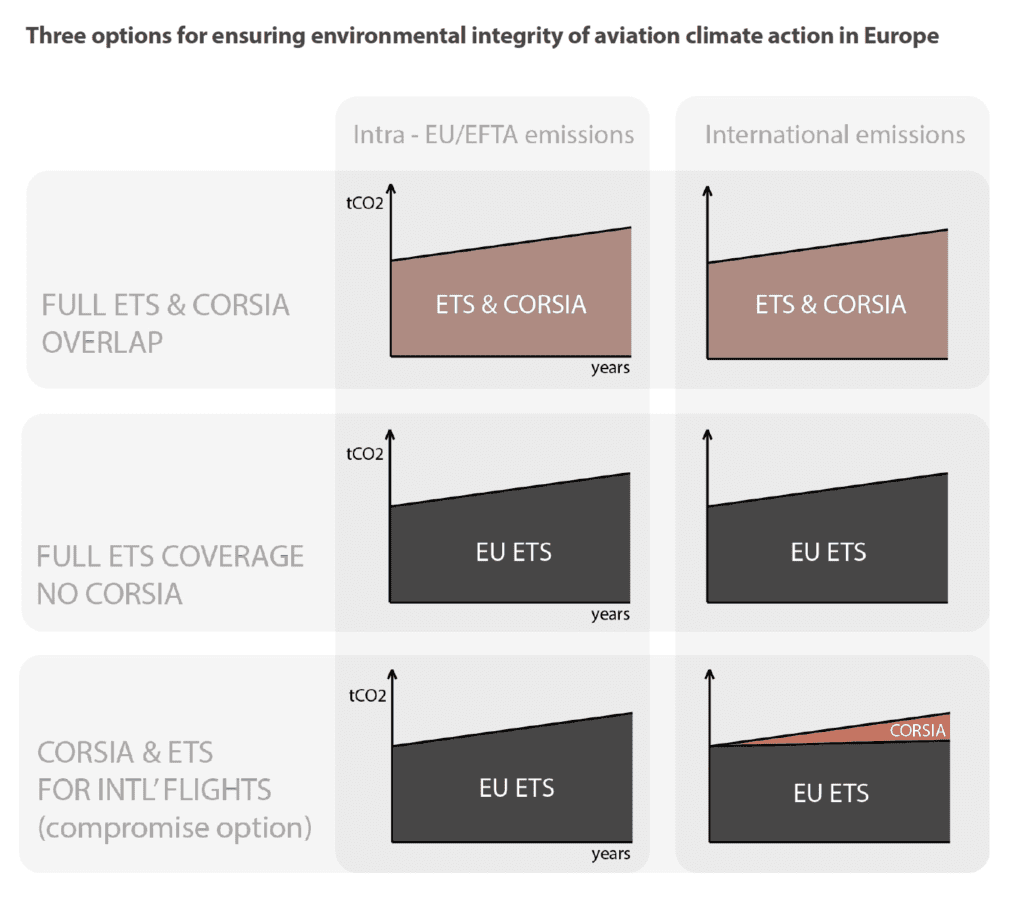This policy paper complements the briefing “A New Hope – recommendations for the EU Emissions Trading System review”
Introduction:
The aviation sector is responsible for nearly 4% of the EU’s total CO2 emissions, and is the second biggest contributor to transport emissions, after road transport. While in flight, planes emit CO2 and also impact the climate in other ways, including through nitrogen oxides (NOx), water vapour, and soot particle emissions, which interact with the atmosphere at high altitudes. These effects are estimated to triple the “warming” impact of aviation, i.e. the total impact of the sector on climate change is three times higher than that generated by its CO2 emissions alone.

The aviation sector has benefitted from large exemptions under the EU Emissions Trading System (EU ETS), in addition to being favoured by fuel tax and VAT exemptions and large subsidies to regional airports. These measures are incompatible with the EU’s stated climate ambition and the application of the polluter pays principle.




